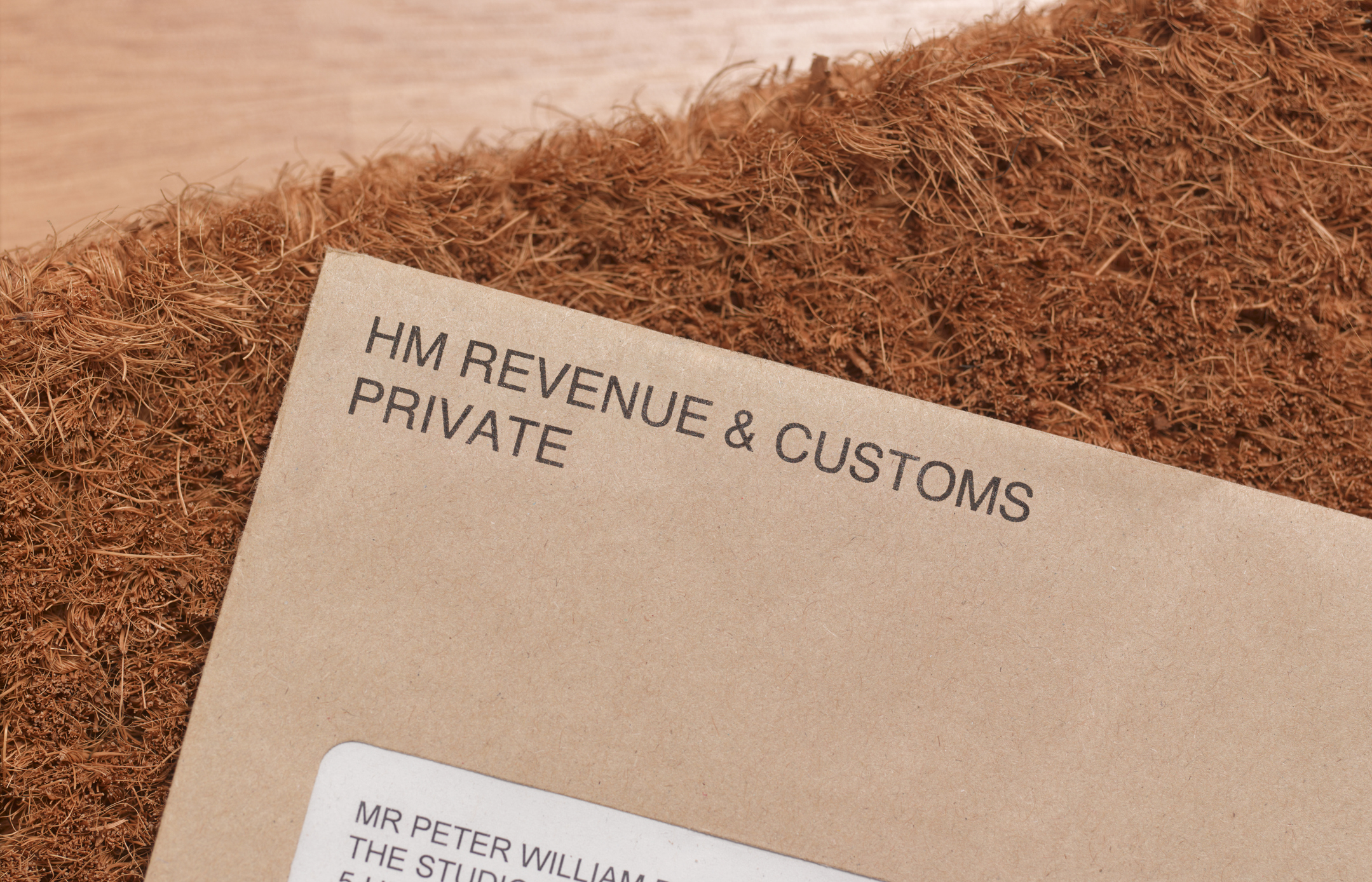Pension inheritance tax paperwork nightmare – how to prepare to avoid penalties
Pensions will be included in inheritance tax calculations from April 2027 and in a shock move, your executors will have to shoulder the burden of finding all your unused pots


Get the latest financial news, insights and expert analysis from our award-winning MoneyWeek team, to help you understand what really matters when it comes to your finances.
You are now subscribed
Your newsletter sign-up was successful
Want to add more newsletters?

Twice daily
MoneyWeek
Get the latest financial news, insights and expert analysis from our award-winning MoneyWeek team, to help you understand what really matters when it comes to your finances.

Four times a week
Look After My Bills
Sign up to our free money-saving newsletter, filled with the latest news and expert advice to help you find the best tips and deals for managing your bills. Start saving today!
The government has confirmed it will press ahead with plans to apply inheritance tax to unused pensions on death, despite significant opposition. But a surprise change to the policy could leave your loved ones with a severe admin headache – unless you act now.
Pensions will be included in estates for inheritance tax calculations from April 2027. That is the outcome of a government consultation on the policy first announced by chancellor Rachel Reeves in the 2024 Autumn Budget.
It’s now been confirmed that the responsibility to track down all those pensions will fall to the estate’s executors – also known as personal representatives. If, as many people do, you choose an executor from your family, it could mean your loved ones are left playing detective.
MoneyWeek
Subscribe to MoneyWeek today and get your first six magazine issues absolutely FREE

Sign up to Money Morning
Don't miss the latest investment and personal finances news, market analysis, plus money-saving tips with our free twice-daily newsletter
Don't miss the latest investment and personal finances news, market analysis, plus money-saving tips with our free twice-daily newsletter
They won’t have much time to locate all the unused savings – the government is still insisting they settle any inheritance tax bill within six months. Miss the deadline and penalties of between £100 and £3,200 apply.
Rachel Vahey, head of public policy at AJ Bell, said: “Bereaved families face a huge administrative burden. Many people have complex financial affairs, especially those who die unexpectedly, meaning settling the inheritance tax bill quickly may not be straightforward,” she added.
Beneficiaries might be able to pay the whole IHT bill from other estate assets, possibly resulting in a faster settlement. But it is still by no means a simple process under the new rules.
“Bereaved and grieving families will still have to grapple with the additional complexity and confusion caused by adding unspent pension funds into the IHT liable assets,” said Vahey.
“Rather than saving them from a tortuous process, this feels like HMRC is doubling down by pushing even more problems firmly onto the plate of the bereaved to solve.”
We look at ways to reduce your IHT bill and avoid inheritance tax altogether in separate articles.
How to prepare your estate for pension inheritance tax rule changes
Getting ahead of the incoming changes now is the best way to prepare your estate so your loved ones – or whoever is the executor – have less of an admin nightmare when you die.
Former pension minister Steve Webb, who is now partner at pension consultancy LCP, said his three top tips on how to avoid an inheritance tax pension paperwork headache are:
1) Keep your paperwork
This way if a loved one has to deal with your affairs after you have gone, there’s a chance they will be able to identify the pension schemes of which you were a member, and know your policy numbers to make tracking them down easier.
2) Create your own pension identification document
Some people go further and produce a short document that can be easily found which will give their executor and heirs useful information about all of their financial affairs.
Pension provider Royal London has created a handy template document called ‘When I’m Gone’, which allows people to provide all sorts of details about financial matters as well as funeral wishes, location of their will and other important information.
3) Consider a financial power of attorney
Getting a financial power of attorney in place now could help. Once you are dealing with someone’s estate it will be before you have probate, so financial institutions may be wary of even giving you information.
But if you can show you already had financial power of attorney for the deceased this can sometimes make them much more willing to deal with you.
What executors will need to do after you die
In terms of the new regime for pensions and inheritance tax, the first step will be simply to locate all the pensions.
“Although in principle you have to contact all of the pension providers and schemes, it’s the defined contribution or ‘pot of money’ pensions which are key,” said Webb.
In many cases these will be run by household name insurance companies, so Webb says if there’s no paperwork, a good place to look is bank statements for things like one-off withdrawals (eg from a drawdown account) or (for younger deaths) regular direct debits to collect premiums.
If the individual had a financial adviser then they should be contacted. They should have a full picture.
A bit nearer the time of implementation of the new policy, due from April 2027, HMRC has promised to produce information and guidance for executors about the steps they will need to take, Webb pointed out.
“HMRC has also promised various online tools and calculators, so you won’t actually have to work things out for yourself, you will simply have to enter the relevant information and they will then apply the rules and work out what is due (if anything) and from whom,” said Webb.
In most cases there is unlikely to be an IHT bill, but you still have to gather all the information to make sure.
Get the latest financial news, insights and expert analysis from our award-winning MoneyWeek team, to help you understand what really matters when it comes to your finances.
Laura Miller is an experienced financial and business journalist. Formerly on staff at the Daily Telegraph, her freelance work now appears in the money pages of all the national newspapers. She endeavours to make money issues easy to understand for everyone, and to do justice to the people who regularly trust her to tell their stories. She lives by the sea in Aberystwyth. You can find her tweeting @thatlaurawrites
-
 Should you buy an active ETF?
Should you buy an active ETF?ETFs are often mischaracterised as passive products, but they can be a convenient way to add active management to your portfolio
-
 Power up your pension before 5 April – easy ways to save before the tax year end
Power up your pension before 5 April – easy ways to save before the tax year endWith the end of the tax year looming, pension savers currently have a window to review and maximise what’s going into their retirement funds – we look at how
-
 Little-known way inheritance tax pension raid could put thousands of businesses at risk – ‘issue is flying under the radar’
Little-known way inheritance tax pension raid could put thousands of businesses at risk – ‘issue is flying under the radar’Changes to inheritance tax rules could wipe out 15,000 businesses where owners put their premises in their pension, experts have warned
-
 Will chancellor Rachel Reeves reverse non-dom inheritance tax changes?
Will chancellor Rachel Reeves reverse non-dom inheritance tax changes?The end of the non-dom tax regime is already causing a UK wealth exodus, data suggests, but chancellor Rachel Reeves may make changes to soften the blow of reforms
-
 Family left with £20k IHT bill because of out-of-date tax advice
Family left with £20k IHT bill because of out-of-date tax adviceFrozen tax thresholds and dated guidance helped drag the estate into an inheritance tax liability despite extensive use of gifting to avoid a bill
-
 Family faces £1 million inheritance tax bill over widespread issue with holiday lets
Family faces £1 million inheritance tax bill over widespread issue with holiday letsMany bereaved families with furnished holiday lets are unable to claim business property relief and have to pay inheritance tax, lawyers say.
-
 HMRC opens 1,000 more inheritance tax probes – what to do if it happens to you
HMRC opens 1,000 more inheritance tax probes – what to do if it happens to youEnquiries into inheritance tax owed have jumped by over a third in just one year, but there has been in a decrease in the proportion of investigations leading to higher bills
-
 Nine ways to reduce your inheritance tax bill
Nine ways to reduce your inheritance tax billThe government has collected a record amount of inheritance tax in recent years – but these steps could help you cut your bill
